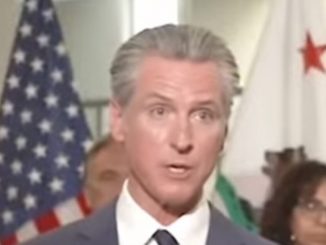
Published July 22, 2025
University of Oklahoma Under Fire for Labeling Itself a “Safe Place” for Illegal Aliens
The University of Oklahoma (OU) is facing criticism after openly promoting itself as a “safe place” for undocumented students, drawing backlash from conservative watchdogs and immigration reform advocates who say the institution is circumventing federal law.
A section of OU’s admissions website specifically welcomes undocumented and DACA (Deferred Action for Childhood Arrivals) students, stating that the university “is a safe place for undocumented students and their families.” The webpage provides detailed guidance on how non-citizen applicants—including those without legal immigration status—can pursue higher education through the university.
Under Oklahoma House Bill 1804, passed in 2007, undocumented students may qualify for in-state tuition if they attended an Oklahoma high school for at least two years and sign an affidavit affirming they will seek legal status. OU is actively promoting this path, allowing non-citizens to benefit from significantly lower tuition rates than international students or out-of-state residents.
Although federal financial aid remains unavailable to undocumented individuals, OU outlines potential eligibility for state-funded and university-based scholarships—particularly for those who have initiated some form of immigration petition with the U.S. government.
Conservative commentators have slammed the university’s approach. The Gateway Pundit described the school’s policy as “lawless,” accusing OU of openly defying federal immigration statutes. Campus Reform, a student-driven conservative outlet, echoed those concerns, framing the move as part of a growing trend in higher education where universities act as de facto “sanctuary campuses” without formally adopting the term.
Critics argue that by branding itself a “safe place,” OU may be encouraging illegal immigration or misleading prospective students into believing they’re protected from immigration enforcement—something only federal law enforcement can determine.
Meanwhile, supporters say the university is operating within the bounds of Oklahoma law and that it is providing much-needed clarity for students who grew up in the U.S. but lack legal status due to decisions made by their parents.
As debates over immigration enforcement and education access continue nationwide, the University of Oklahoma now finds itself at the center of a heated national conversation—one that pits state-based education policies against federal immigration law and conservative outrage.
 Resulting Effects:
Resulting Effects:
1. Public Backlash and Political Scrutiny
-
Conservative media outlets have amplified outrage, portraying the policy as a defiance of immigration law.
-
Public criticism may pressure university administrators and state lawmakers to reevaluate or clarify OU’s position.
-
Could ignite legislative efforts in Oklahoma to tighten restrictions on public institutions supporting undocumented individuals.
2. Increased Enrollment Interest from Undocumented Students
-
OU may see a surge in applications from undocumented or DACA students across the state who now view the university as accessible and welcoming.
-
The “safe place” label provides emotional reassurance to students who live in legal limbo, encouraging them to pursue higher education.
3. Possible Legal Challenges
-
With other states already facing lawsuits over similar tuition or scholarship provisions, OU may attract legal scrutiny or litigation, especially if advocacy groups argue that the school is violating federal law or enabling selective benefits to non-citizens.
4. Policy Spillover to Other Universities
-
OU’s stance could influence other state universities to follow suit, either to stay competitive or to support underrepresented students.
-
Alternatively, more conservative institutions might adopt opposing measures, leading to a widening policy divide among public universities nationwide.
5. Increased Tension Between State and Federal Authorities
-
The policy may fuel conflict between state autonomy in education and federal immigration enforcement.
-
If federal agencies or lawmakers push back, universities like OU could become legal and political battlegrounds over immigration policy.
6. Potential for Targeted Federal Defunding Threats
-
The Biden administration has generally supported DACA students, but a change in federal leadership (e.g., after elections) could result in threats to withhold funding from universities deemed to be harboring or assisting undocumented individuals.
7. Division Among Students and Faculty
-
OU’s stance could deepen campus polarization, with some students and faculty strongly supporting the policy while others view it as unfair or unlawful.
-
This might affect campus culture, trigger protests, or result in demands for administrative resignations.
 Bottom Line:
Bottom Line:
The University of Oklahoma’s decision to label itself a “safe place” for undocumented students has thrust the institution into a broader national debate over immigration, education access, and the role of public universities in shaping social policy. While the university argues it is acting within the bounds of Oklahoma law—providing lawful pathways for admission and in-state tuition—critics see it as part of a growing pattern of institutions undermining federal immigration enforcement by normalizing illegal presence.
This policy may offer hope and opportunity to a segment of students often caught in legal and social limbo, but it also invites legal, political, and public backlash. As tensions grow between state-level inclusivity efforts and federal immigration priorities, OU’s move could become a flashpoint for broader legal challenges, policy reforms, and ideological division both on campus and beyond.
In the end, the university’s stance reflects a larger question facing America: Should educational institutions serve as sanctuaries for opportunity regardless of immigration status, or should they act as enforcers of federal law? How that question is answered may define not just the future of OU—but of immigration policy in higher education nationwide.





Be the first to comment